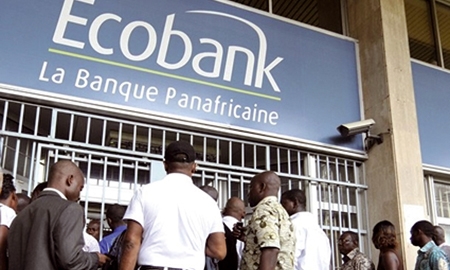For some banks and investors, the 2011 Nigerian financial shake-up may have posed a threat to the comfortable status quo. To others, it signalled a definite downfall. To some, however, the rearranging, the mergers and acquisitions, and nationalisation process represented a huge opportunity. Those banks whose corporate governance had been good and financial figures solid, were well positioned to take advantage of the turmoil and come out ahead. Such was the case of Ecobank Transnational Inc (ETI), a Togo-based multinational group with a growing and sound business in Nigeria, who in the last quarter of 2011 took over one of Nigeria’s troubled banks – Oceanic Bank International Plc.
When shareholders first heard of the board’s decision to acquire Oceanic Bank after it failed to pass the stress test jointly conducted by the CBN and the Nigerian Deposit Insurance Corporation last year, they saw an opportunity for growth. Fast forward to ETI’s 2012 annual general meeting. Shareholders praised the investment, recognising that it went a long way in giving Ecobank the thrust it needed to break into the top five banks in Nigeria, the most populous country in Africa.
For Arnold Ekpe, outgoing ETI Group CEO, this was the single most significant event in 2011 and helped fulfil his vision to place the bank in the tier one segment in Nigeria. This swan song feat transformed Ecobank into Nigeria’s second largest bank by branch network – with 610 branches – and fifth largest in terms of assets.
Though by far the largest and most important, the Oceanic Bank acquisition was not the first for Ecobank Nigeria, as previous reforms in the banking sector had required the financial institution to expand.
“We have built a One Bank concept. Our products are designed to provide convenience as you do business or travel across West Africa.“ Jibril Aku, Managing Director of Ecobank Nigeria |
Jibril Aku, Managing Director, explains: “In Nigeria we found ourselves small, because historically the bank was a corporate and investment bank that catered to a particular class of customers. But after the 2005 banking reforms, which raised the capital level to $200 million, we had to expand into a full service bank and we started to grow. Before we acquired Oceanic, we had three other acquisitions: Allstates Trust, Hallmark and Africa International banks.
“That increased our market share but it was not going to take us to top three. Organically we could not do it because the other banks were also growing. With the monetisation of foreign currency, you can actually grow without taking business from anybody else.”
He continues: “With Oceanic Bank we found a bank that was well embedded in the middle market. While Ecobank had mostly corporate accounts, it was missing that value chain of distributors, suppliers and employees, whereas Ocean Bank was missing the corporate value chain. So, it was the perfect combination. In Oceanic Bank we also found a vibrant microfinance business, being run as a department. At the time of the merger that business had N20 billion in assets – N1 billion in loans and the rest were deposits. These small savers borrow money and repay every time, which encourages a savings culture.”
At year-end 2011, ETI’s revenue from operations in Nigeria had grown by 42% to $360 million, while profit before tax had risen by a massive 338% to $38.8 million. Assets also rose, totalling $7.5 billion, a 150% increase on 2010. Ecobank’s customer base rocketed from 1.3 million to 5.9 million, following the acquisition.
Present in 33 countries on the continent, the pan-African group has pursued a growth strategy based on both mergers & acquisitions and greenfield projects. To date, ETI has made a dozen acquisitions, mainly during the commodity boom, when African customers were especially keen on banking services that interconnect African markets.
“We follow the African trade chain and provide the banking support for it,” says Mr Aku. “We have built a One Bank concept. We can move workers across these countries, regardless of language or nationality barriers. Truly, we are the pan-African bank. Our products are designed to provide convenience as you do business or travel across West Africa. Our remittance product provides a rapid transfer of service, and our debit card – which is used to access accounts in Nigeria – is called the Regional Card, because you can receive cash in local currency in any country. We are the bank for clients who have regional ambitions beyond Nigeria and want to have an African footprint.”
ETI’s acquisition “frenzy” (in 2011, it also acquired The Trust Bank in Ghana) is winding down and now the bank plans to focus on its customers and internal efficiency, a strategy that should drive the group’s profits up across the regions.
Ecobank isn’t the only bank coming out ahead as a result of the CBN reforms. Another banking merger, completed in February 2012 between First City Monumental Bank (FCMB) and FinBank PLC, is set to drive FCMB’s profits back into the black this year and has produced a customer base of 1.7 million.
The overall process, however, has not been as fluid as the Ecobank-Oceanic Bank one. As Ladi Balogun, Managing Director of FCMB, stated in the bank’s most recent annual report, it was “a transaction that tested our resources and resolve in a longer than anticipated acquisition campaign.”
Although FCMB was strong enough to take on FinBank, it had recently experienced a few difficult years due to the 2006-2009 capital market bubbles and the excesses in oil prices. Mr Balogun remains optimistic: “With the bold provisions and write-offs taken, we have now put these behind us and can look forward with confidence to significantly better years ahead.”
0 COMMENTS